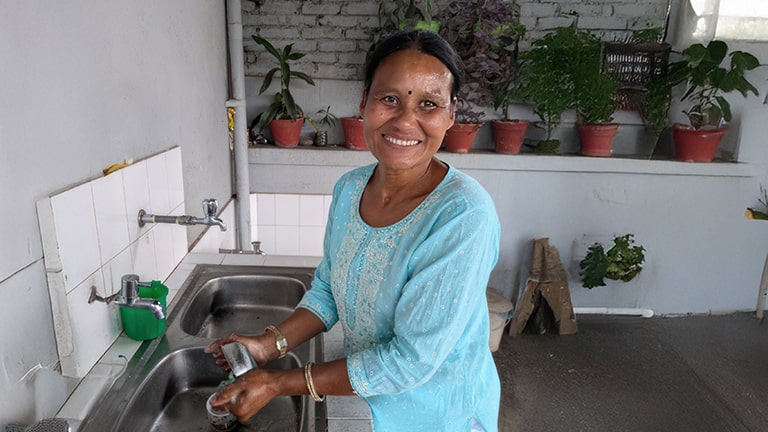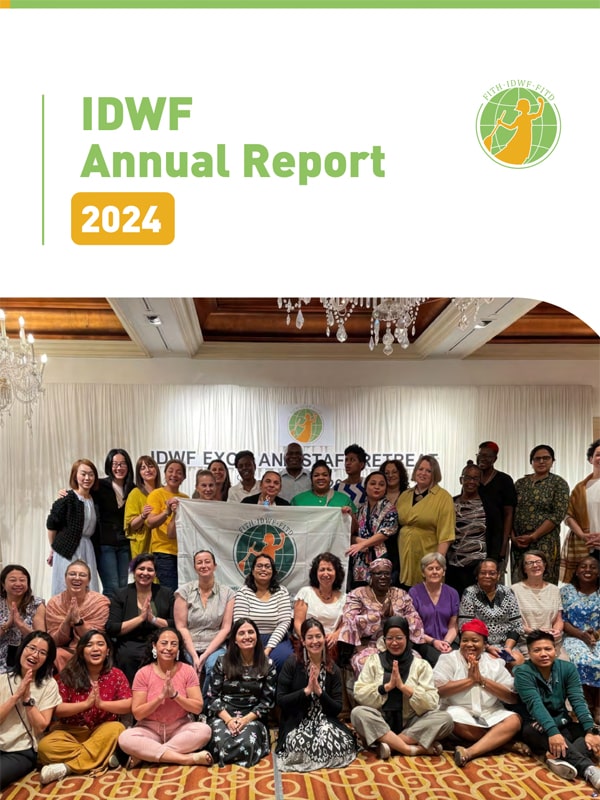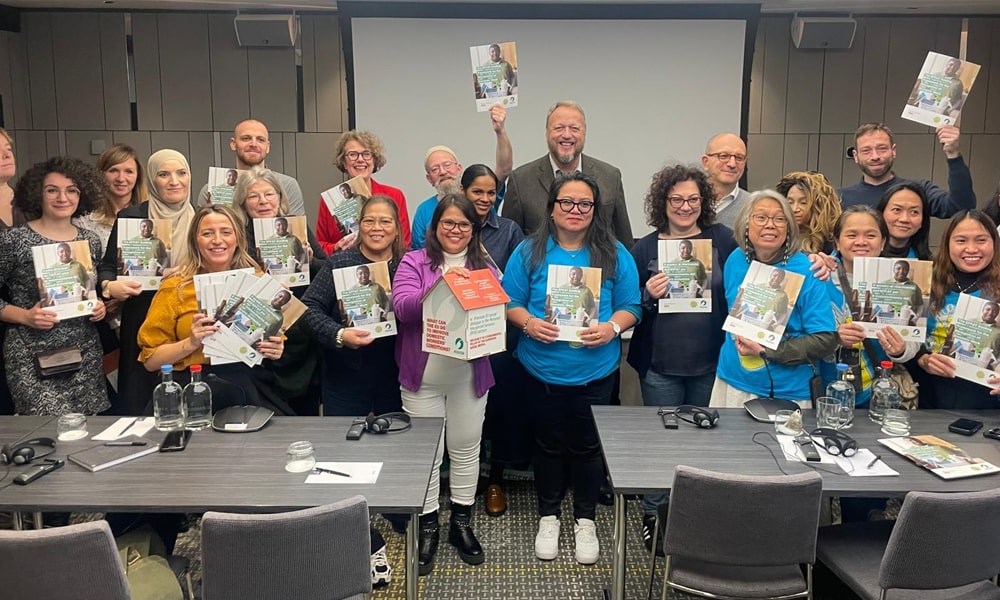Interview with Adriana Paz Ramírez, IDWF General Secretary
We are living in the “era of care” — a crucial moment in which global care needs are rising and will continue to rely on domestic workers. In this context, the International Domestic Workers Federation (IDWF) has just launched its Theory of Change, a key tool to address the challenges posed by the current care economy and to advance decent work for domestic workers.
Across the world, more than 75 million people are engaged in domestic work, 76% of whom are women, largely racialized and from the most marginalized groups in society. Their role in the care economy is central: they represent at least 25% of the care workforce, providing both direct and indirect care that is essential for sustaining life, since it is the work that makes all other paid work possible.
Despite its vital importance for social and economic development, care has long remained invisible in the mainstream economy. Most societies continue to place low social and economic value on care work, often considering it “unskilled” — or not even “real” work — but rather an extension of women’s unpaid care responsibilities.
The deep inequalities reflected in the current social organization of care — rooted in slavery, colonialism, and patriarchy — are particularly acute in domestic work, where multiple and intersecting forms of historical discrimination have led to the exclusion of domestic workers from the protection and exercise of the rights to which they are entitled as wage workers. This explains the severe decent work deficits, the high rates of informality (over 80% globally), and the alarming prevalence of violence and harassment, forced labor, and child labor in paid domestic work.
Care needs will continue to grow as the global population ages. It is estimated that 2.3 billion people will rely on care in the near future and that 300 million new jobs will be needed to meet that demand. There is no way to prevent a global care crisis without the full recognition and dignity of domestic workers — both in law and in practice — as pillars of the care economy. Decent work for domestic workers is not a privilege; it is a right. And it is also a means to guarantee that society as a whole can exercise its right to care.
In this interview, Adriana Paz Ramírez, IDWF General Secretary, explains why the Theory of Change is a key practical instrument for the domestic workers movement to navigate the risks and opportunities of this new era of care.





